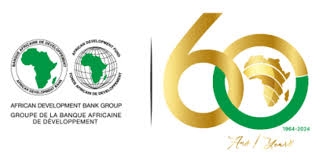As Africa transitions toward a climate-resilient, low-carbon economy, the African Development Bank (www.AfDB.org), with support from the Climate Investment Funds (CIF) (http://apo-opa.co/3NaTp3W), is reinforcing its commitment to a just transition across the continent. In line with this commitment, key decision-makers from Ghana, Kenya, Uganda, and Namibia recently gathered in Nairobi for the final session of the Just Transition Planning Masterclass, a critical capacity-building initiative to support African countries in planning a fair and inclusive transition to sustainable development.
Delivered as part of the African Development Bank’s ongoing efforts to advance Just Transition mainstreaming, the Masterclass provided a platform for participants to enhance their knowledge, skills, and networks. The initiative brought together 25 policymakers, civil society organizations, and technical experts from pilot countries to collaborate on practical solutions for inclusive climate action.
Focusing on each country’s unique socio-economic landscape, the Masterclass equipped decision-makers with tools to address the disruptions caused by the transition to cleaner economies. The final in-person session, held from 17-18 September 2024, followed four preparatory webinars. Participants examined successful cases of just transition planning, presented country-specific challenges, developed strategies to tackle impacts on economies and livelihoods, and met with potential funders to explore financing options for just transitions.
Bubacarr Sankareh, Lead Advisor to the Director-General for East Africa Regional Development and Business Delivery Office, underscored the importance of the initiative in his opening remarks: “The transition toward clean and sustainable development will require transforming how we produce and consume energy, manage resources, and drive our economies. These transformations will disrupt economies and livelihoods. A just transition ensures these disruptions are addressed so no one is left behind. In Africa, it is about not only minimizing the negative impacts of climate action but also maximizing the development and prosperity that come from these transformative actions.”
Sankareh noted that the transition will differ between fossil fuel-dependent and non-fossil fuel-dependent African countries, stressing the need for equitable access to the benefits of sustainable development while sharing its costs.
Caroline Aguti, Assistant Commissioner at Uganda’s Ministry of Energy and Mineral Development, emphasized the need to revise Uganda’s energy transition plan to integrate social justice. She also called on development partners, including the African Development Bank, to continuously support countries by establishing relevant funding instruments for just transition investments.
Kidanua Abera Gizaw, Coordinator of the Bank’s Just Transition initiatives, stressed that effective just transition mainstreaming requires a cross-sectoral approach with consistent national, sectoral, and operational planning. By targeting decision makers across various sectors, the Masterclass will bridge these levels and integrate just transition principles into planning for sustainable development.
As part of its Climate and Green Growth Strategic Framework (2021-2030), the African Development Bank is on track to mobilize $25 billion by 2025 to support climate action. The Bank’s just transition framework will ensure that country-level projects are efficiently identified and implemented, aligning with its broader climate goals.

